The Germans are passionate about their games, but they also have some…odd choices for themes. In 2019 Reiner Knizia, perhaps the most prolific game designer of all time, released a game titled L.L.A.M.A. (henceforth called Llama) about llamas; and about nothing at the same time. It’s the same sort of game as Uno, and it so captured Germany’s attention that it was nominated for the prestigious Spiel des Jahres. Let’s dig in to see just what the fuss is about.
Llama Overview
Llama is a small box card game in the same vein as Uno. Short, easy to teach and play, with just enough bite to keep players’ attention. The first thing you’ll notice about Llama is the silly grin of the titular mascot on the cover of the game.
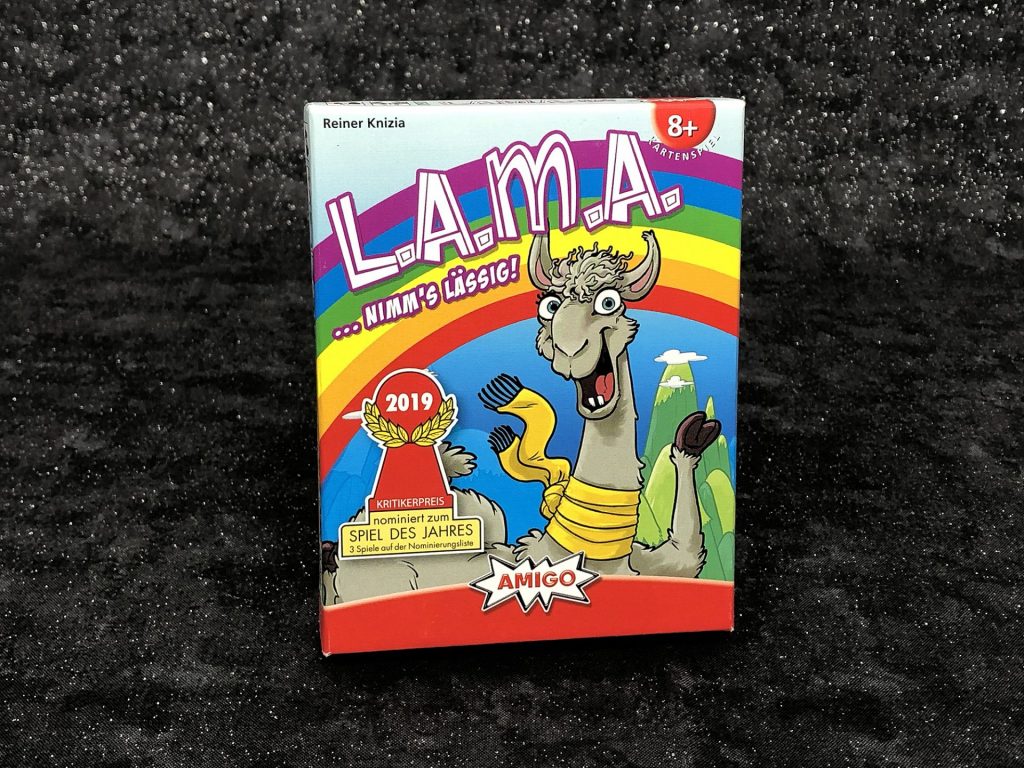
Open it up and you’ll notice other similarities to the “king of card games”: brightly colored numbered cards and a very brief set of rules. I even pitched Llama as a great alternative to Uno (along with No Thanks, PUSH, and Five Crowns).
But how does Llama play? Quite well actually!
Llama is a “card shedding” game in which players try to get rid of the cards in their hand before anyone else. Once a player has played all the cards from their hand, the round ends and players receive points for their remaining cards. The first person to hit 40 triggers the end of the game and the player with the fewest points wins the game.
Players are dealt a hand of 6 cards and the dealer flips a single card face up to begin the game. On your turn you have three choices: play a card, draw a card, or fold.
Play a Card
Llama’s deck includes cards numbered 1 to 6 (in 6 different colors) and special llama cards.
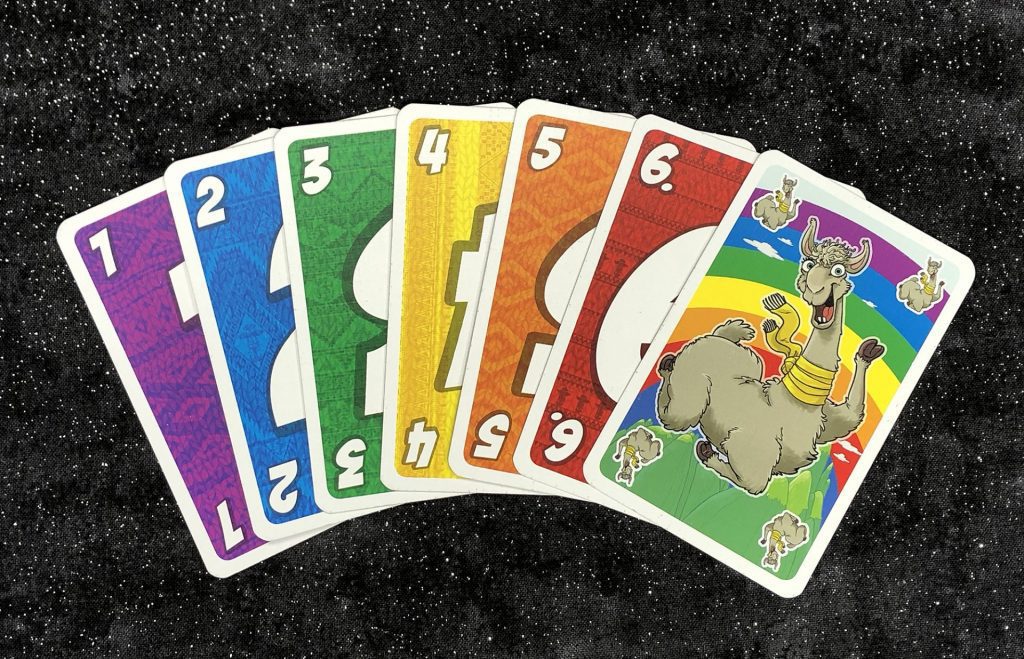
When playing a card, you can either match the value of the card on the top of the discard pile, or play something one higher. So if the top card were a 1 you could play either a 1 or a 2. In the case of a 6 you can play either a 6 or a llama, and in the case of a llama you can play another llama or a 1.
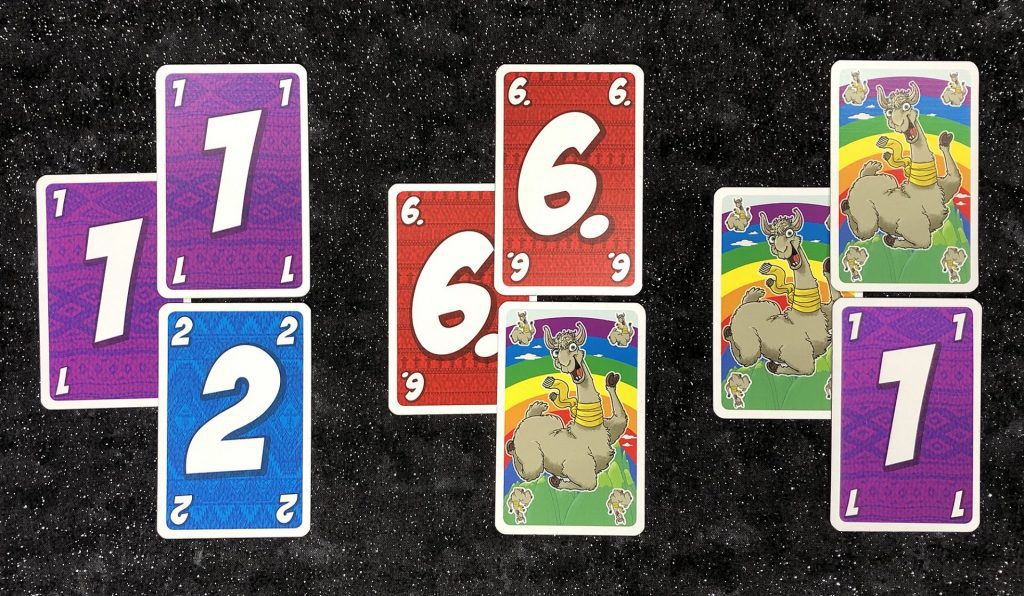
Draw a Card
If you can’t play, then you draw a single card. Unlike Uno, once you draw a card your turn is over, even if you could play the card.
Fold
If you can’t play a card and choose not to draw, then you must fold. You’re out of the round and will score the cards you have left in your hand.
End of the Round
Play continues around the table until either someone plays all of their cards or everyone folds. If only one player remains, they can continue playing cards from their hand but they may not draw. After everyone is finished, all players take chips equivalent to the value of the cards left in their hand.
Scoring
There are a few nifty end of round features that make Llama special.
If a player gets rid of their whole hand, they may return a single chip to the pot. White chips are worth 1 point, black chips are worth 10, and players can exchange 10 white chips for a black one at any time. This means that if a player has 9 white chips and goes out, they can return a single white chip to the pot. Whereas if a player has 20 points (2 black chips) and they go out, they can return a single black chip. Additionally the way hands are scored is pretty neat: while cards are always worth their face value (llama cards are worth 10 points), you don’t simply add up the points. You first “collapse” all like cards into a single stack and add the value of that card type.
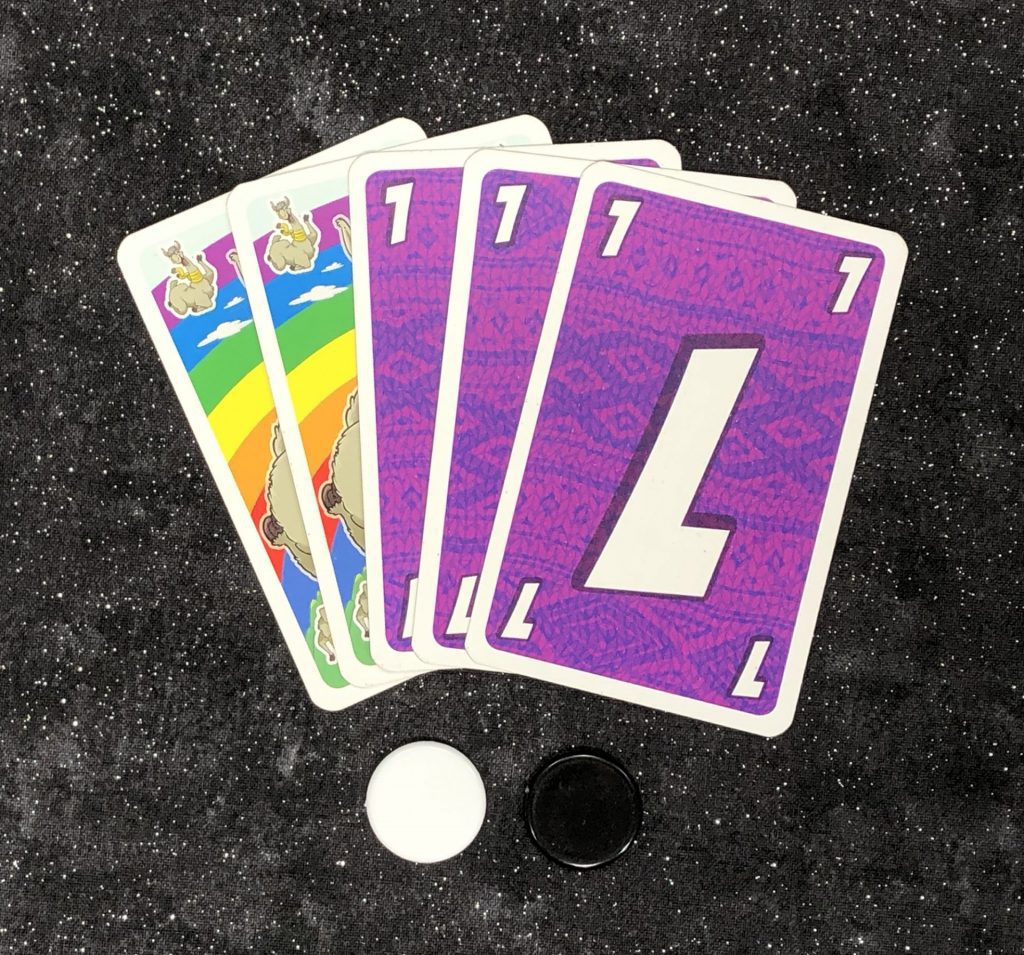
End of the Game
The game ends after a round in which at least one player reaches 40 points. The player with the fewest points wins.
Final Thoughts
Llama is a certified hit among my family and friends; so much so that my 8 year old nephew asked for a copy of the game for his birthday! The artwork is bright and colorful and will appeal to just about anyone, even if the llama seems to be mocking you for your poor cardplay skills. But the gameplay is where Llama shines; it’s light enough that you can play while chatting with your tablemates, but offers just enough decision space that you never feel as if you’re just laying down the next card in your hand.
Being able to return a single chip means that in some cases you have the potential to halve your score if you’re lucky and make good decisions.
Additionally, the point stacking at the end of a round makes for some really interesting choices. Consider the following situation:
You’ve got three 1 cards in your hand, and the player before you lays down a 2. You could draw, but you might wind up with a llama card (10 points), and you might have to draw again on your next turn. So a good option might be to fold and only receive a single point.
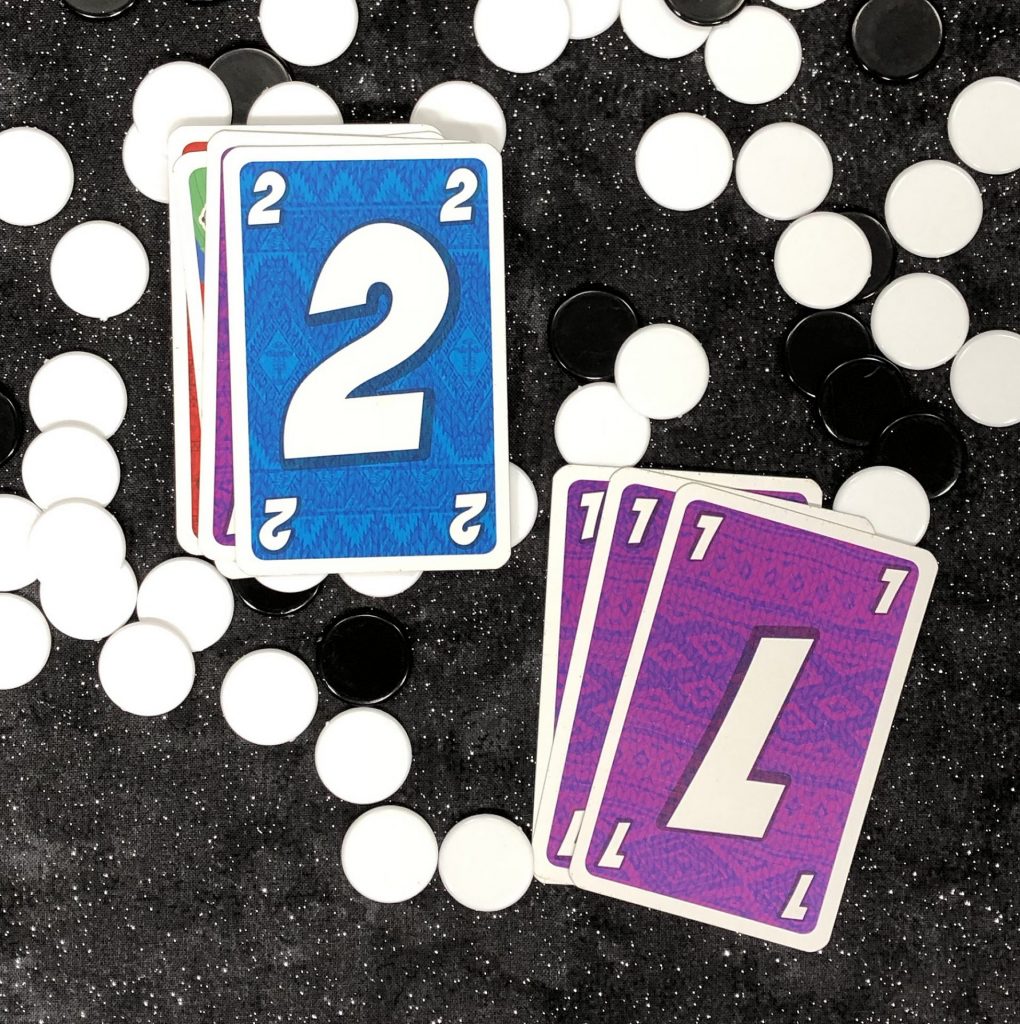
While it’s usually advantageous to play the lowest possible card, there are some cases where it might benefit you to play the next card up. Consider this situation:
You have two 4s, and one 5, and the top card is a 4. You could play your 4, but you can’t be sure it will still be on 4 when it comes back to you. Because the 4s would stack to a single 4 point total, it might be in your best interest to play the 5 so that you know you’ll be rid of 5 points.
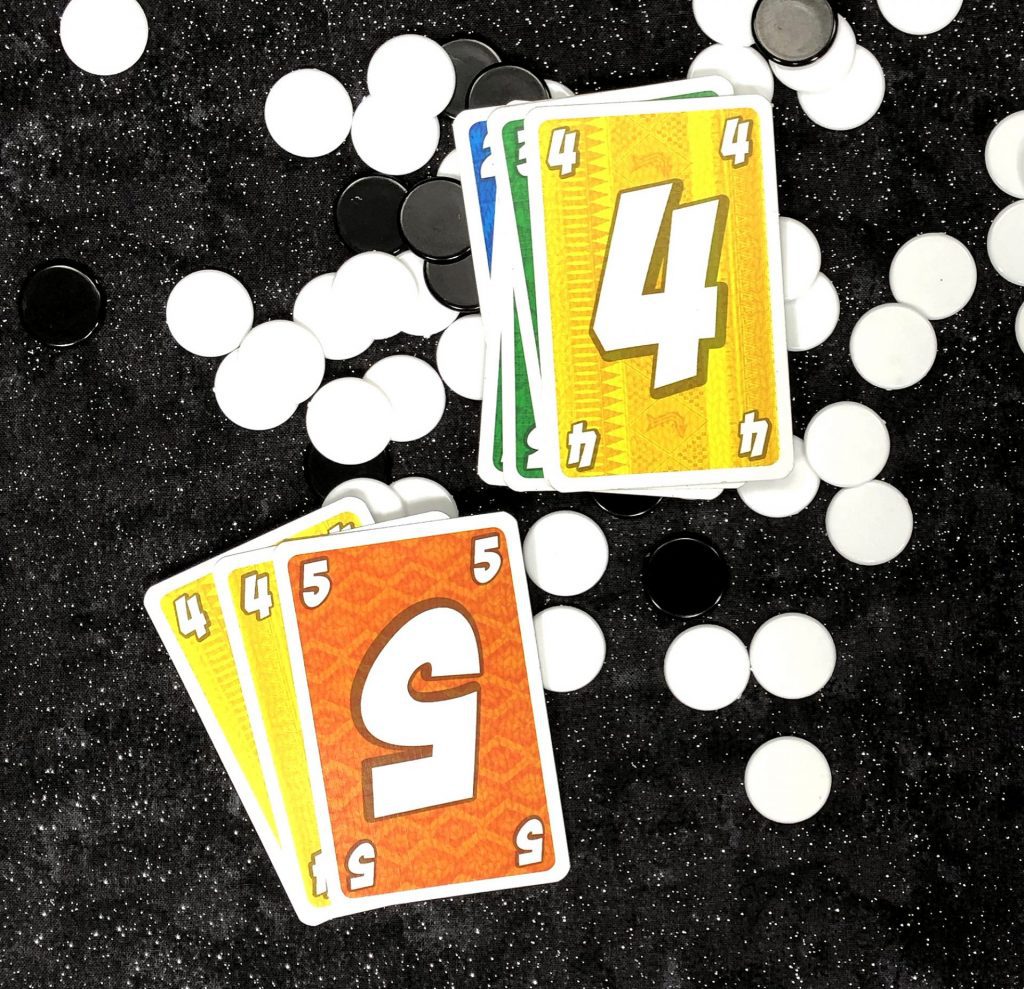
Yes, it’s a simple game, and perhaps I’m putting too much strategy into it, but Llama loves you regardless, and still maintains that goofy grin. So go on, show Llama some love. You won’t regret it! And besides, how can you not love a game designed by a man who will dress up as a llama for an award ceremony?
Nominated for the Game of the Year 2019: L.A.M.A. by Reiner Knizia. #sdj2019 pic.twitter.com/gvw0OIX3uV
— Spiel des Jahres (@SpieldesJahres) July 22, 2019


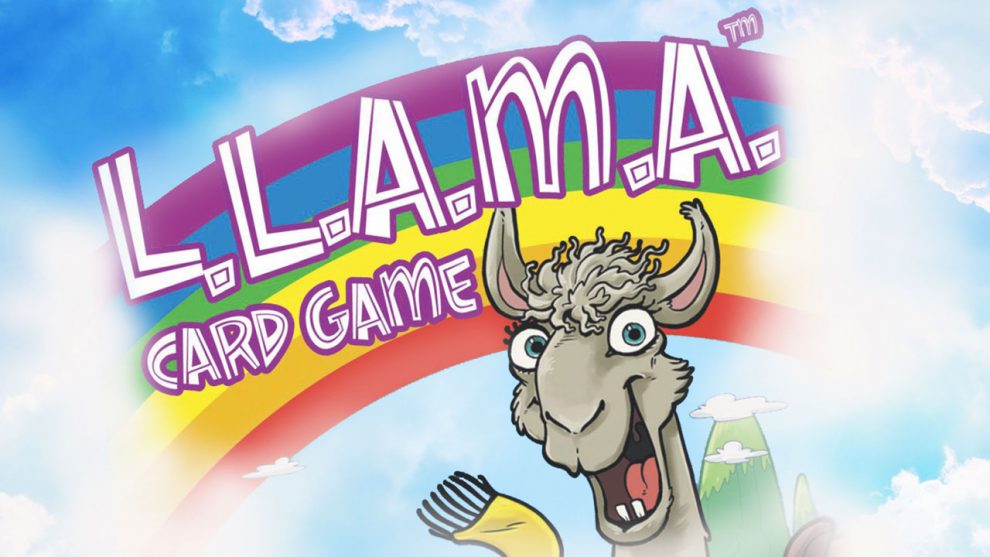









Add Comment